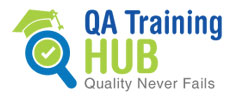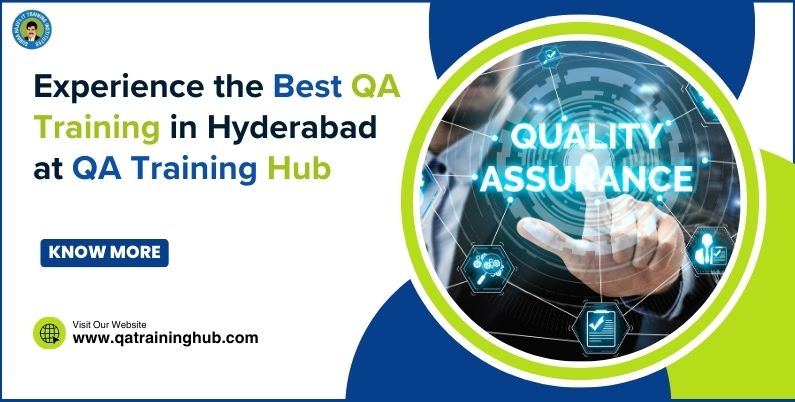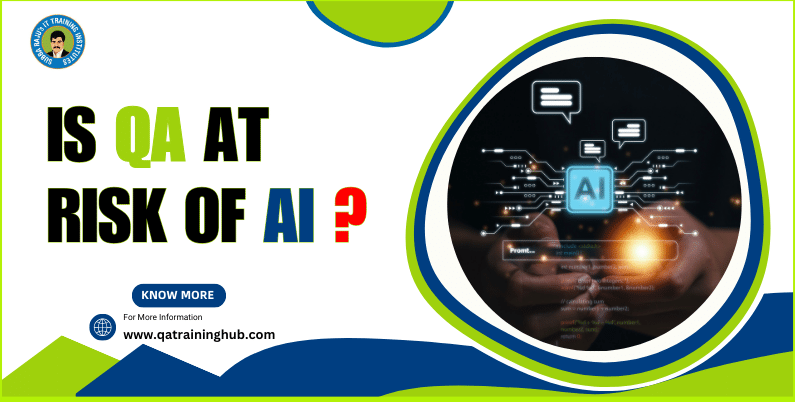
Mastering the Craft: Essential Skills for Software QA Testers
The role of Quality Assurance (QA) testers is pivotal. A proficient team of QA testers, armed with essential software QA Tester skillsets is indispensable for ensuring the success and longevity of any software project. The consequences of releasing software with even a single bug can be catastrophic, potentially shaking the very foundations of a company and incurring irreparable losses.For disastrous scenarios, forward-thinking companies prioritize the hiring of qualified and experienced QA testers, specifically those trained in the software testing courses that include placement opportunities. These professionals play a crucial role in identifying and rectifying defects before software is released into the competitive industrial market.
The Challenging Landscape of Software Testing Careers :
Beginning the career in software testing, as imparted by institutes offering the best software testing courses, is a challenging yet rewarding endeavor. This profession demands unique skill sets, as the pressure to keep software projects on schedule and within tight deadlines is immense, often leading to strenuous workloads and stressful situations.
Essential Skills Acquired in Software Testing Courses with Placement
Here are 7 Most Essential Software QA Tester Skillsets acquire through the software testing courses, particularly those with placement opportunities:
1. Critical & Analytical Thought Process
A QA tester’s primary responsibility is to ensure that a company’s product aligns seamlessly with customer preferences and requirements. A skilled QA tester, trained in the software testing courses, must adopt a customer-centric mindset throughout the entire software development cycle. This involves the ability to think critically and analytically, creating numerous ‘What if’ scenarios to ensure the software responds effectively to every conceivable situation. This foresight is instrumental in maintaining the functionality of the software when faced with real-world scenarios, ultimately enhancing customer satisfaction.
2. Flexibility
QA testers, undergoing training in software testing courses with placement, must exhibit adaptability and proficiency in various testing techniques, including both automation and manual methods. Familiarity with common tools is crucial, and a passing acquaintance with all available options is advisable. For instance, proficiency in manual testing alone may not suffice; if the role demands automation testing, the QA tester should excel in that domain as well. Emphasizing continuous learning and the acquisition of new skills is vital for staying ahead in this rapidly evolving field.
3. Excellent Communication Skills
Effective communication is paramount for QA testers. Those trained in the software testing courses are not only responsible for identifying and reporting issues within the development process but also for articulating these concerns to clients and individuals beyond their immediate roles. The ability to communicate with both technical and non-technical stakeholders, including laypersons, is essential for ensuring a smooth and collaborative workflow.
4. Quick Learning Ability
In the ever-evolving landscape of software development, QA testers trained in software testing courses with placement must possess a rapid learning capability. This adaptability allows them to swiftly learn, master, and apply new tools and techniques to the software development cycle, ensuring the progression of the product.
5. Collaboration & Social Skills
As companies increasingly adopt Agile testing approaches, the traditional departmental silos are breaking down. QA testers now play a pivotal role in collaborating with developers, programmers, and C-level executives. Training in the software testing courses equips QA testers with the skills needed to understand and convey relevant issues to diverse teams. The best QA testers work closely with individuals outside their expertise, contributing to the overall success of the product.
6. Computer Programming, Automation, & Coding Skills
A QA tester equipped with the software testing course must possess a solid understanding of analysis, design, and coding mechanisms. This proficiency provides valuable insights into the lifecycle of defects. Highly skilled QA testers often opt for automation, using coding skills to automate repetitive tasks and save valuable time and resources. This is particularly crucial for running regression tests after frequent code changes.
7. Integration Testing Skill
QA testers, trained in software testing courses with placement, are well-versed in integration testing. This phase involves combining individual software modules and testing them as a group. QA testers conduct integration testing to evaluate the compliance of systems or components with specified functional requirements. This critical step occurs after unit testing and before system testing, ensuring that the integrated system is ready for comprehensive testing.
Conclusion
In conclusion, the role of a QA tester is multifaceted and demanding, requiring a unique combination of technical proficiency, communication skills, adaptability, and a customer-centric mindset. The software QA testing courses, particularly those with placement opportunities, play a pivotal role in equipping aspiring QA testers with the skills and knowledge needed to navigate the challenges of the software development landscape successfully. As technology continues to advance, the demand for skilled QA testers trained in the latest methodologies will only intensify, making this field a promising and rewarding career choice for those up to the challenge.
As we’ve explored the 7 Most Essential Software QA Tester Skillsets in the software testing courses, particularly those with placement opportunities, it becomes evident that QA Training Hub goes beyond imparting mere technical knowledge. The critical and analytical thought process, flexibility, excellent communication skills, quick learning ability, collaboration, programming expertise, and integration testing skills are the pillars upon which QA Training Hub builds successful QA careers.
Choose QA Training Hub for a transformative learning experience, and equip yourself with the 7 Most Essential Software QA Tester Skillsets. Elevate your QA journey with QA Training Hub, where every challenge is an opportunity, and every lesson propels you toward excellence. Your future in Quality Assurance starts here—unleash your potential with QA Training Hub!





